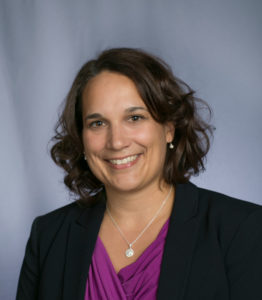Our Blog
Interested in Subscribing to our blog?
Former Navy JMO’s Advice for a Transition to a Business Career
Kristen Deffenbaugh graduated from the US Naval Academy in 2003 with a BS in Mechanical Engineering and then went on to earn a Masters in Science of Mechanical Engineering in 2004 from the Naval Post Graduate School. She served as a Naval Surface Warfare Officer (SWO) until 2008 when she partnered with Cameron-Brooks and transitioned to a business career as Manufacturing Supervisor with Celgene in Phoenix, AZ. 
Kristen was kind enough to answer some of my questions about her career and insight into making a successful transition to business for other officers considering the transition.
1. Current position at company:
Assoc. Director, Phoenix Process & Technology, Celgene. The Celgene Phoenix location is a manufacturing site dedicated to the production of Abraxane, a nanotechnology product used to treat metastatic breast cancer, non-small cell lung cancer, and pancreatic cancer. In addition to manufacturing personnel, the site has support resources needed to produce and ship the product including quality assurance, quality control, maintenance, engineering and technical services, and production planning/inventory control and IT.
2. What is one thing you learned during your time as a candidate with Cameron-Brooks that has been influential to your career success?
The interview and resume skills. I had never had a real job interview prior to the Career Conference. I had also never put a resume together. The DPP© helped me learn more about myself and be able to really prepare a resume and prepare for interviews. Additionally, and more importantly, the Cameron-Brooks team helped with practical practice in interviewing. It was a very safe place to get honest and constructive feedback. This also helped me once I was hired in providing better guidance to people I try to mentor and to be a better interviewer when hiring for my company.
3. What has been your biggest accomplishment in the business world that you would not have been able to complete without your military background?
I recently worked on a global ERP implementation as the site lead for one of the manufacturing plants. This was a very large challenge due to the breadth and depth of the implementation. The project team consisted of hundreds of people within our company, as well as contractors on three continents. My military service helped me jump into something very large that I had no background in and to adapt. I was willing to work with brand new, diverse teams, and to learn and organize—even though I was unsure of where to start. I think my military experience was absolutely translatable in this situation and was critical to my success with the team.
4. What specific advice would you give to other Cameron-Brooks Alumni, especially the ones in their first two years?
Learn, read, ask questions; talk to people in different functions. Learn how it works at the bottom first. Business is different than the military. Although there are many invaluable skills we learn while in the military that translate to business, those skills are best adapted when we understand how the business world works. Very similar to being a JMO, when entering the business world, it is usually at a relatively low-level management position, which is an invaluable opportunity to learn how the day-to-day works. Later, when in higher leadership positions, an understanding of the day-to-day is critical to making important decisions.



